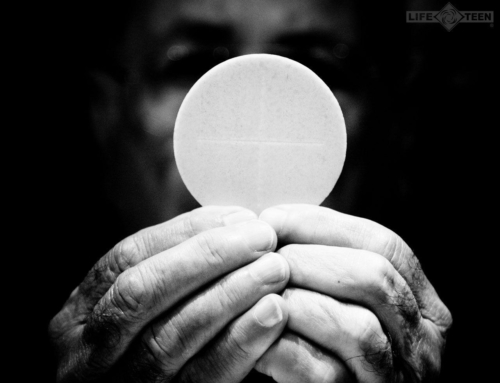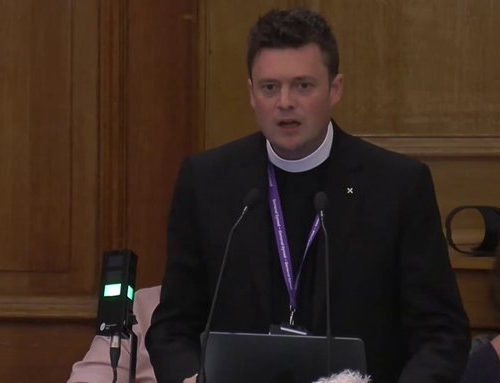Notice my headline is not “Beware Married Priests.” I have written extensively on this topic over the years. As one of the few married Catholic priests, I guess I have something to contribute to the discussion.
Could married men be ordained as priests? Yes. It is a discipline of the church that can be changed. The arguments back and forth almost always focus on the practicalities: how would we pay them? What about their wives and families? What happens if there is a divorce? Who will look after clergy widows?
All these practical problems could be easily overcome. Therefore this type of discussion is pointless.
What worries me about this discussion back and forth is the lack of any theological dimension. When I was an Anglican priest I noticed in the debate about women being ordained to the priesthood that the proponents of the change used three arguments: the utilitarian, the sentimental and the political.
The utilitarian argument was -“We need more priests. Sally is a terrific church person. She can do the job well enough. Why shouldn’t she? Ordaining her will solve a lot of problems.”
The sentimental argument was – “Sally’s such a nice person. She is so holy. She is so devoted. Everyone loves her. She would make such a good priest. She feels called to be a priest. It is so mean to deny her the calling. We should be nice to Sally. She is feeling persecuted by this rejection.
The political argument was – “This is a question of justice. Women should be equal to men. It is wrong to deny them and to continue this misogynistic discrimination.”
These are the same three arguments that are always used by the progressives when they want to make a change. Now we cannot deny that these arguments carry some weight, but it is quite wrong for these to be the ONLY arguments.
Why? Because all three of these forms of argumentation are completely subjective. They are flexible friends. They can be used for any cause imaginable and can be marshaled to force through any kind of change.
Furthermore, these forms of argument, being subjective, are never rational. They might seem reasonable, but they are not, at the root rational arguments. They are emotional. The sentimental is always woven into and through both the utilitarian and the political arguments. Witness any sort of progressive argument in this way. It is always loaded up with high emotion.
So with the arguments for married priests. If these arguments are used in special circumstances on a case by case consideration, they may be the only arguments necessary. As in my case and the case of the priests of the Ordinariate, a special exception is made to the rule.
If a whole area of the church makes the change–let’s say the Dioceses in the Amazon–you can be sure that it will spread. The change will have taken place by stealth. This is not the way change should happen in the church.
Call it the stealth synod method.
Furthermore, this change by stealth synod is insidious. Just read the working document. They want to downplay doctrine. They want to get rid of an overarching doctrine for all Catholics. They want to bring in a “recognized ministry for women.” That’s code for women deacons of course.
Note that I am not saying things should not change. I’m speaking about the WAY things are changing. The changes are being brought about through sentimentality, utilitarianism and political correctness.
This is not Catholic. It is relativistic and secular.
If married men are to be ordained, the discipline should be discussed at the highest levels. The theology should be done. The whole church should be consulted and after proper discernment and a theological and Scriptural grounding the change should be effected for the whole church.
The worrying thing about the synod in the Amazon is not married priests or even women deacons. It is arguable that these changes could happen, but if they do it must be done properly.
Change by stealth synod? Anything is possible, and if you want to see what happens to a church ruled by a synod…
…check out the present state of the Church of England.







Your readers may be surprised to see this comment coming from a woman.
I love the Church. I want to minister. If women could become priests, I would have entered the seminary in the early ’70s. Since then, I’ve studied and researched the issue of women priests extensively, and this is what I’ve concluded:
Jesus could have made women priests, but He did not. It wasn’t because he was afraid of the religious authorities–his resistance to them was what got Him killed. He wasn’t bound by the culture he lived–see, for example, His meeting with the woman at the well (John 4: 4-26). It wasn’t because He couldn’t find women brave enough to take the chance of ostracism and perhaps death–see the boldness of Martha in John 11: 5ff, or Magdalene at the cross after the disciples ran away. The rather vague references in Acts to women with some type of influential role do not outweigh the behavior of Jesus.
Above all, He had His mother–the holiest, bravest, most committed disciple in the history of Christianity. She was available, she would have done it–but He didn’t ask her. Why not? Because He had other plans.
I feel sad when I write this. I’ve always wanted to be a priest. But Jesus didn’t do it, and I can’t get around that. So, if I’m a sincere disciple of His, then I bow my heart before Him, accept His mysterious plan, and ask for His help to find my place in the Church.
I don’t find many Catholic women who agree with me on this, but I think what I’ve written is true.
Dear Martha,
Your post is very genuine, very loving, and very humble. Yes, if in His Divine Plan, Jesus had wanted to give the great grace of the priesthood to women, He certainly would have, somehow, left that directive with the first apostles and allowed for that directive to find its way into Holy Scripture, to solidify its basis.
That said, next to Jesus, in heaven and earth, no one is more honored that the Blessed Virgin Mother of God, Mary most holy. As Saint Maximilian Kolbe stated, and I paraphrase, since Mary is the spouse of the Holy Spirit, and spouses are so completely linked that they are no longer two souls and two bodies, but one, then Mary is indeed one with the Holy Spirit.
That is why Mary is the singular dispenser of all the graces God sends to us, by Divine decree. We cannot behold Mary without beholding the Holy Spirit. That is an honor shown to “the Woman” and to “womanhood” that surpasses all the nine choirs of angels.
And Mary, in all Her greatness…in all Her unity with the Holy Spirit…never asked of Her Divine Son to allow women to be priests–not even to honor Her Immaculate Womanhood. So, yes…we must bow to Jesus’ s wish, but we bow with great love and devotion, knowing that, in heaven and on earth, there is no greater person in all creation, next to Jesus, than His Blessed Virgin Mother, Mary. Even the holiest, most trusted, and most chaste man who ever walked the face of the earth, St. Joseph, was never given such a high honor.
Dear Martha, not being able to be a priest detracts nothing from your marvelously blessed womanhood. Without God’s blessed creatures, women, we would have no new life on the earth. In your womanhood, you are a true treasure in the sight of God. Please continue to follow and serve Jesus as you have been. You are an inspiration to all us men.